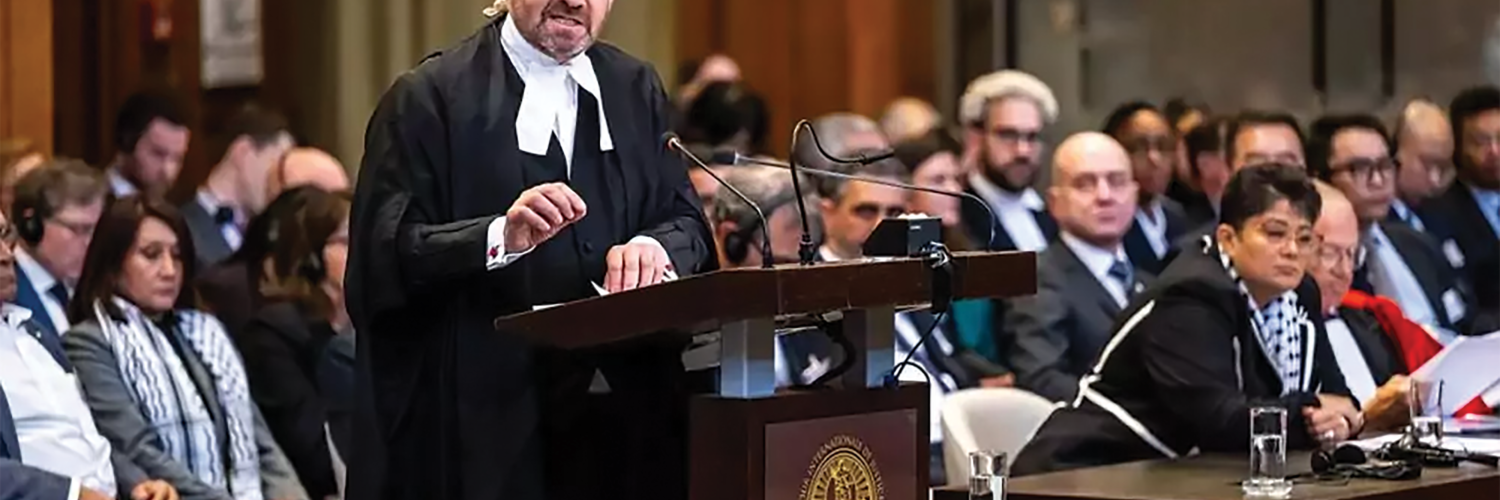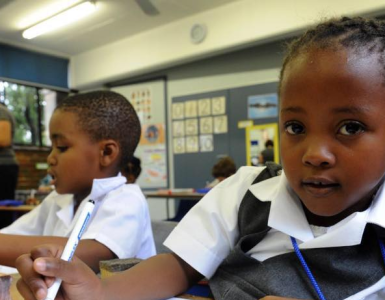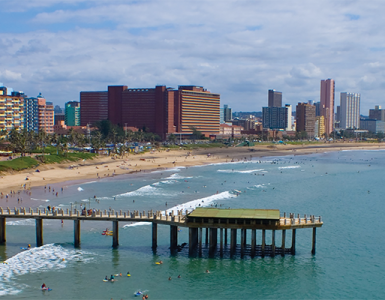THE CASE: On the first day of hearings at the International Court of Justice at The Hague on the legality of Israel’s occupation of Palestine, the judges heard from Palestine’s lawyers.
By Janet H Anderson at The Hague
“No one in this Great Hall of Justice is starry-eyed about international law, but it is what we have,” proclaimed British barrister and King’s Counsel Philippe Sands, as he appeared for Palestine before the International Court of Justice (ICJ) on the first day of the case on Monday.
He placed his arguments squarely in the context of the “right to self-determination” enjoyed by all peoples under the United Nations Charter. That right “has real and practical consequences,” he continued, including the right to control land and resources and be free from demographic manipulation.
Israel is not attending the hearings. While Palestine’s representatives spoke over three hours and submitted a 390-page written brief, Israel filed a five-page document challenging the legitimacy of the proceedings.
It argues that the framing of the questions before the court is “prejudicial” and disregards the “thousands of dead and wounded Israelis who have fallen victim to murderous Palestinian acts of hatred and terrorism – acts that continue to endanger Israel’s civilians and national security on a daily basis.”
The challenge for Palestine and the states that agree with its analysis is to convince judges that they should see what is happening in Palestine now in the grand sweep of history, and boldly apply several international law instruments including the United Nations Charter, and conventions on racial discrimination and against apartheid, to analyse the situation. The judges are being encouraged not to be overly deferential to any state’s arguments about endangering putative peace negotiations or Israel’s security.
The context of the mounting casualties in the war in Gaza provided a steady drumbeat during Palestine’s presentations, emphasising the urgency of the situation and providing additional evidence of the Israeli leadership’s negative attitudes to any prospective Palestinian state. But the mass of documents, maps and the quotes fielded by Palestine skirted over many potential Israeli counter-arguments.
Bewigged Sands tells court: “We trust that the Court will dismiss the argument that the Palestinian people’s right of self-determination is somehow conditional upon a subjective determination by Israel as to matters of its security.”
Sands says an opinion of this court makes a peaceful resolution to the Israeli-Palestinian conflict more likely, not less likely.
“Palestinian statehood is not dependent on the approval of Israel. The Occupying Power does not have, and cannot have, a right of veto over the right of self-determination of the Palestinian people,” he concludes.
“The right of self-determination requires that UN Member States bring Israel’s occupation to an immediate end. No aid. No assistance. No complicity.
No contribution to forcible actions. No money, no arms, no trade, no nothing. All UN Members are obliged by law to end Israel’s presence on the territory of Palestine. Period.”
TIMELINE – ICJ HEARINGS
Since Monday this week until Monday (February 26), the ICJ has been hearing the opinion of more than 50 countries on the legal implications of Israel’s occupation ahead of the court issuing a nonbinding opinion. Qatar, the United States and Egypt are currently mediating negotiations for a ceasefire between Israel and Hamas to stop the current war, which is taking a devastating toll on Palestinian civilians in the Gaza Strip. NOTE: This case is separate from the other by South Africa, where it is accusing of Israel of committing genocide in Gaza. Last week’s report in the Mirror may have created an impression that this is one and the same case, when it is not.
DAY ONE
MONDAY: Palestinian representatives present their arguments on the legal consequences of Israel’s occupation of the West Bank, East Jerusalem and Gaza Strip. The occupation is illegal and must be brought to an immediate, unconditional and total end, they argue.
More than 50 states and at least three international organisations will address judges at the United Nations’ top court until February 26. A nonbinding legal opinion is expected after months of deliberation by the judges.
Israel is not attending the hearings but sent a five-page written statement, saying an advisory opinion would be “harmful” to attempts to resolve the conflict because questions posed by the UN General Assembly are prejudiced.
DAY TWO
TUESDAY: Oral proceedings continue for a second day at the International Court of Justice (ICJ) on the legal consequences of Israel’s occupation of Palestinian territories.
Representatives from Algeria, Saudi Arabia, the Netherlands, Bangladesh, Belgium, Belize, Bolivia, Brazil and Chile present their positions.
South Africa tells the court that Israel is responsible for apartheid against the Palestinians and its occupation is “inherently and fundamentally illegal”.
“We as South Africans sense, see, hear and feel to our core the inhumane discriminatory policies and practices of the Israeli regime as an even more extreme form of the apartheid that was institutionalised against Black people in my country,” says Vusimuzi Madonsela, South Africa’s ambassador to the Netherlands, where the ICJ is based.
DAY THREE
WEDNESDAY: Proceedings have begun the third day of hearings at the ICJ.
Hungary calls on the ICJ to decline to exercise its jurisdiction as its advisory opinion could “directly contribute to the escalation of the conflict”.
Guyana says “Israel’s occupation must end, immediately, comprehensively, irreversibly”.
The Gambia asks the ICJ to affirm that the occupation is illegal. It also argued that Israel was under an obligation to end its occupation immediately.
France says all damage caused to the Palestinian population as a result of Israeli policies and practices illegal under international law must be the object of restitution and, failing that, compensation.
Russia calls for the establishment of the Palestinian state, saying “a negotiated two-state solution with an independent and viable Palestinian state peacefully coexisting with Israel will be the best recipe for bringing an end to Israel’s violations, creating guarantees of their non-repetition and redressing the damage”.
United States: Acting legal adviser for the US State Department, Richard Visek, tells court: “The court should not find that Israel is legally obligated to immediately and unconditionally withdraw from occupied territory.
“Any movement towards Israel’s withdrawal from the West Bank and Gaza requires consideration of Israel’s very real security needs.
DAY FOUR
THURSDAY: Representatives from China, Ireland, Japan, and Jordan present their arguments at the ICJ hearing on Israel’s occupation of the Palestinian territories.
China tells the ICJ the Palestinians “must not be denied” justice at a hearing on the Israeli occupation of the Palestinian territories.
Al Jazeera’s Step Vaessen, reporting from The Hague, said China used its time at the ICJ to counter the United States’ argument on Wednesday that Israel should not be ordered to unconditionally withdraw from the occupied territories without security guarantees.
The Chinese representative said Israel is a foreign nation occupying Palestine, so the right to self-defence lies more with the Palestinians than with the Israelis – Al Jazeera’s Step Vaessen, reporting from The Hague.
“Justice has been long delayed, but it must not be denied,” China’s Foreign Ministry’s legal advisor Ma Xinmin tells court.
“The Chinese representative said Israel is a foreign nation occupying Palestine, so the right to self-defence lies more with the Palestinians than with the Israelis,” reported Al Jazeera’s Vassen.
Ireland says it concluded that “Israel has committed serious breaches of a number of peremptory norms of general international law”. It added that Israel had also breached the basic rules of international humanitarian law.
The legal adviser for Japan’s Foreign Ministry, Tomohiro Mikanagi, tells the ICJ that his country believes a “two-state solution where Israel and the future independent Palestinian state live side by side in peace and dignity remains the only viable path for both peoples”.
For Jordan, Michael Wood said that “the only way for the [Palestinian] right to self-determination to be exercised is for the [Israeli] occupation to come to an end”.
DAY FIVE
FRIDAY: Representatives from several other countries, including Namibia, Pakistan, Norway, Indonesia and the United Kingdom, Zambia speak at today’s hearing.
Qatar tells court it rejects the “double standards” when international law applies to some but not to others during a hearing on Israel’s occupation of the Palestinian territories.
“Some children are deemed worthy of protection while others are killed in their thousands,” says senior Qatari diplomat Mutlaq al-Qahtani.
“Qatar rejects such double standards. International law must be upheld in all circumstances. It must be applied to all, and there must be accountability”.
Pakistani Minister for Law and Justice Ahmed Irfan Aslam said that while Israel had tried to make its occupation of the Palestinian territories irreversible, history has shown that change is possible, referring to the withdrawal of French settlers from Algeria in 1962. He added that a two-state solution “must be the basis for peace”.
Norway’s representative says developments on the ground “give reason to ask whether the occupation is turning into a de facto annexation”, which is prohibited under international law.
Indonesian Foreign Minister Retno Marsudi says: “I stand before you to defend justice against a blatant violation of international humanitarian law that is being committed by Israel.”
The British representative is the only person to divert from what other countries have said and instead aligned with the US, which called on the court to reject issuing an advisory opinion.
The representative says, while Israel’s occupation is illegal, it is a “bilateral dispute”, and issuing an opinion would affect the security framework led by the United Nations Security Council.
DAY SIX
Representatives of Zambia, Maldives, Fiji, African Union, Spain, League of Arab States, Turkey and Organisation of Islamic Cooperation will address the court on Monday (February 26). SOURCE: Al Jazeera and Justice Info




























